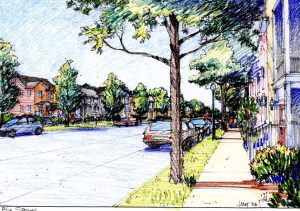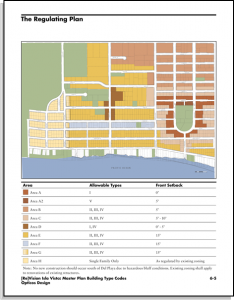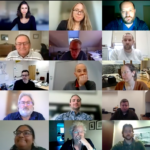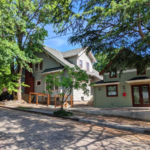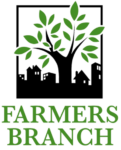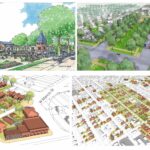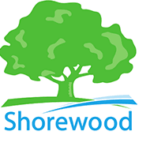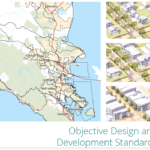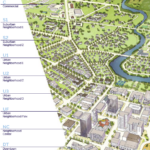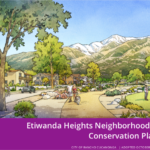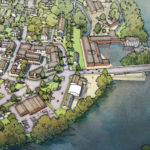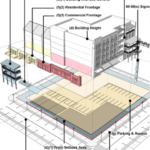Codes for Communities
The FBCI Codes for Communities programs draws on the experience and talents of FBCI leaders to provide local governments with advice and guidance on form-based codes and zoning reform. FBCI offers four levels of assistance in the Codes for Communities program. Click HERE to download a PDF flyer.
Level 1: Code Review
FBCI will review and comment on an existing zoning code to assess whether it supports or impedes other development goals like mixed-use or walkability. Experts will review the code, identify where it impedes other policy goals and suggest changes to address those barriers. FBCI also conducts peer reviews on new draft form-based codes for smaller jurisdictions or districts, before the code is adopted, to ensure the code is consistent with form-based code principles and easy to understand and administer. The sponsoring locality receives a six to ten-page report synthesizing the expert reviewers comments and suggestions.
“We asked the FBCI to review the draft of a form-based code staff developed for the town of Marshall in Fauquier County, Virginia. As form-based codes are new to our staff and our community, it was helpful to be able to tap into the expertise of the FBCI for feedback. The input we received by FBCI, helped make the FBC better and the review by the FBCI experts “The Expert” on form-based codes heightened the community’s and the decision-makers’ confidence in the draft Code.” — Kimberly Johnson, Chief, Zoning & Development Services, Department of Community Development, Fauquier County, VA
Level 2: Code Audit
FBCI conducts code audits of a neighborhood, district or corridor zoning code when a community feels that the form-based code is not producing the kind of development that the community wants. In these audits, FBCI staff interviews key stakeholders—city staff, elected officials and developers—to discover their objectives and concerns about the existing code. Experts will do an in-depth analysis of the code to identify where barriers to good development exist and make suggestions for how these provisions could be changes. At the request of the city staff, FBCI will make a presentation to local staff and stakeholders summarizing the report and/or assist the city staff to develop an RFP or RFQ of more substantial code revisions are needed. In each case, a final report is prepared with the results of the interviews and analysis and suggestions for code revisions.
“The FBCI-SGA team made the difference when our Town Council was deciding whether and how to update an ordinance to make it easier to work with and incentivize redevelopment. Their experienced team listened to town staff and other stakeholders, conducted a thorough review of our current ordinance, and made thoughtful and practical recommendations. As a result of their work, our Town Council now recognizes the kinds of changes needed to create great, walkable development. At the conclusion of FBCI’s final presentation, there was Council consensus to move forward with changes that will create the kind of urban placemaking they envision.” — Susan Berry Hill, Director, Department of Planning & Zoning, Town of Leesburg, VA
Level 3: Code Adjustment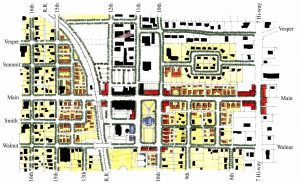
Often, existing zoning codes conflict with other policies adopted to encourage better land use practices, like transit-oriented development or complete streets. In other cases, a zoning code may need to be updated to accommodate new development trends or practices. FBCI will review an existing code, as well more recent changes in policy and practice, to propose updates and adjustments that bring the existing code into alignment. For these assignments, barriers and inconsistencies; FBCI will: 1) review and analyze the existing ordinance and other land use policies and practices to identify barriers and inconsistencies; 2) interview stakeholders in the community—including staff, developers and decision makers; 3) propose adjustments in the ordinance, within the current structure of the code; and 4) prepare a report and final presentation to local stakeholders on the findings and recommended changes.
Level 4: A New Form-Based Code
FBCI partners with a top-notch code writing firm to work with select jurisdictions to create a state-of-the-art form-based code for a corridor, neighborhood or district. Jurisdictions are evaluated based on the following criteria:
- Is the scale of the study area a good fit for the program?
- Is the city committed to adopting a form-based code?
- Does the city have a vision for the study area and a commitment to community engagement?
- Is the city leadership prepared to commit financial and staff resources to the project?
- Does the city have the ability and resources to implement an FBC, once it has been adopted?
- Will the new code serve as an exemplary model for other communities?
Benefits to the partner jurisdiction include: 1) a world-class team of practitioners and other experts led by an experienced Team Leader; 2) close collaboration with local staff members, offering a unique opportunity to learn from the best; 3) a plan for community engagement that includes an on-site charrette with a team of experts selected to fit the specific assignment, some of whom volunteer their time to participate in the charrette; and 4) a cutting-edge new form-based code. Each form-based code developed with FBCI will be widely publicized through FBCI and SGA’s websites and publications and used in FBCI classes as a teaching tool for local governments. Because of sole source limitations in many jurisdictions, FBCI may respond to a request for proposals, if the assignment meets the criteria listed above.
For more information about the FBCI Codes for Communities program, contact Toccarra Nicole Thomas, Director of Land Use and Development at [email protected] or (561) 267-1336.
